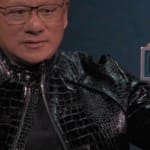Trump urges Intel CEO to step down over China ties
Donald Trump calls for Intel CEO Lip-Bu Tan’s resignation over previous ties to Chinese tech firms, citing US national security concerns.

Former US President Donald Trump has publicly called for the resignation of Intel’s new chief executive, Lip-Bu Tan, citing concerns over Tan’s previous connections to Chinese technology firms. The demand made on Trump’s Truth Social platform comes amid heightened scrutiny from lawmakers over national security implications tied to corporate leadership.
Table Of Content
Concerns raised over Tan’s China investments
Lip-Bu Tan, who took the helm as Intel’s CEO in March, has come under political fire just months into his tenure. The controversy began after Arkansas Senator Tom Cotton questioned whether Tan’s alleged past investments in Chinese firms posed a conflict with US security regulations. Trump responded by calling for Tan’s immediate resignation, stating: “The CEO of INTEL is highly CONFLICTED and must resign, immediately. There is no other solution to this problem. Thank you for your attention to this problem!”
The new CEO of @intel reportedly has deep ties to the Chinese Communists. U.S. companies who receive government grants should be responsible stewards of taxpayer dollars and adhere to strict security regulations. The board of @Intel owes Congress an explanation. pic.twitter.com/3rYhHge6Wa
— Tom Cotton (@SenTomCotton) August 6, 2025
Tan was brought in to steer Intel through a period of strategic transition after the company parted ways with former CEO Pat Gelsinger. Gelsinger was appointed with a four-year turnaround plan but was replaced after three and a half years when the company failed to regain ground in the highly competitive semiconductor industry. Under his leadership, Intel lost further market share to Taiwan Semiconductor Manufacturing Company (TSMC), which had surged ahead by leveraging extreme ultraviolet (EUV) lithography technology initially pioneered by Intel.
Job cuts and project cancellations add to the pressure
Intel’s struggles have intensified in 2025, as the company announced plans to lay off 24,000 employees worldwide. In addition to workforce reductions, Intel also confirmed it would be cancelling planned semiconductor projects in Germany and Poland. These developments have added pressure on Tan to stabilise the company’s direction and rebuild investor confidence.
The leadership shake-up at Intel reflects broader challenges in the global chip industry, where geopolitical tensions and supply chain complexities continue to disrupt production and planning. Tan’s appointment was seen as a bold move to bring a fresh vision to the embattled firm, though his prior affiliations have sparked a new wave of concern from Washington.
Intel defends Tan’s commitment to US security
In response to the criticisms, Intel stated to Reuters this week, defending both the company and its CEO. The company said it remained “deeply committed to the national security of the US and the integrity of our role in the US defense ecosystem.” The statement did not directly address Trump’s remarks but reiterated Intel’s alignment with American defence interests.
Earlier this year, Reuters reported that Tan had invested in over 600 Chinese technology firms throughout his career, with some reportedly linked to China’s military sector. At the time of the report, it was noted that Tan had already divested from an unspecified number of these holdings, although full details were not disclosed.
Tan’s extensive background in venture capital, particularly in Asia’s tech landscape, had initially been viewed as an asset to Intel’s global strategy. However, the evolving political climate in the United States has made ties to China a flashpoint in the discourse around tech leadership, especially within firms closely involved in defence and national infrastructure.
















